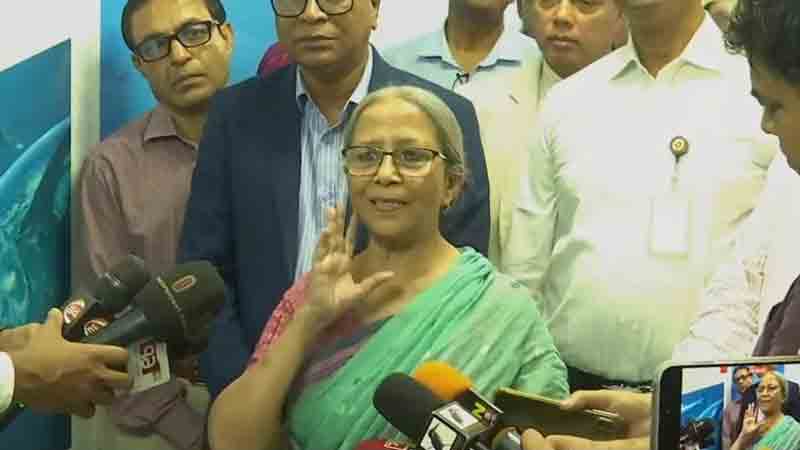Bangladesh moves to curb illegal hilsa fishing as Indian fishermen enter waters: Adviser

NEWS DESK
The government has taken measures after reports emerged of Indian fishermen catching hilsa within the country’s maritime boundary in the Bay of Bengal, Fisheries and Livestock Adviser Farida Akhtar said on Wednesday.
“After learning that Indian fishermen were catching hilsa inside our waters, we instructed the Coast Guard to take necessary measures. Action has already been taken,” she told reporters following the inauguration of the Annual Research Review Workshop at the Bangladesh Livestock Research Institute (BLRI) in Savar.
The adviser emphasised that the government is committed to ensuring that hilsa is available for the Bangladeshi people. “We want our people to eat hilsa. The government is determined to prevent illegal fishing in our sea,” she added.
Despite an ongoing government-imposed ban on hilsa fishing, Farida Akhtar acknowledged reports of illegal fishing and trading in various parts of the country. “We are trying our best to enforce the ban, but in some areas, law enforcement personnel have even come under attack by fishermen while attempting to implement the restrictions,” she said.
She also noted logistical challenges, admitting that the government has been unable to supply sufficient rice to all registered fishermen during the ban period, which is intended to support them financially.
At the workshop, the adviser urged researchers to consider rural women and marginalised communities when planning and executing projects.
She also highlighted the importance of boosting local poultry production and raised concerns over the use of harmful substances in animal feed.
“Those who use tannery waste in livestock feed are enemies of the country. These materials contain high levels of harmful chemicals, increasing the risk of cancer and other serious illnesses,” the adviser warned.
Speaking at the event, Fisheries and Livestock Secretary Abu Taher Md Zaher said while the ministry regularly requests increased research budgets, funding must ultimately benefit ordinary people.














